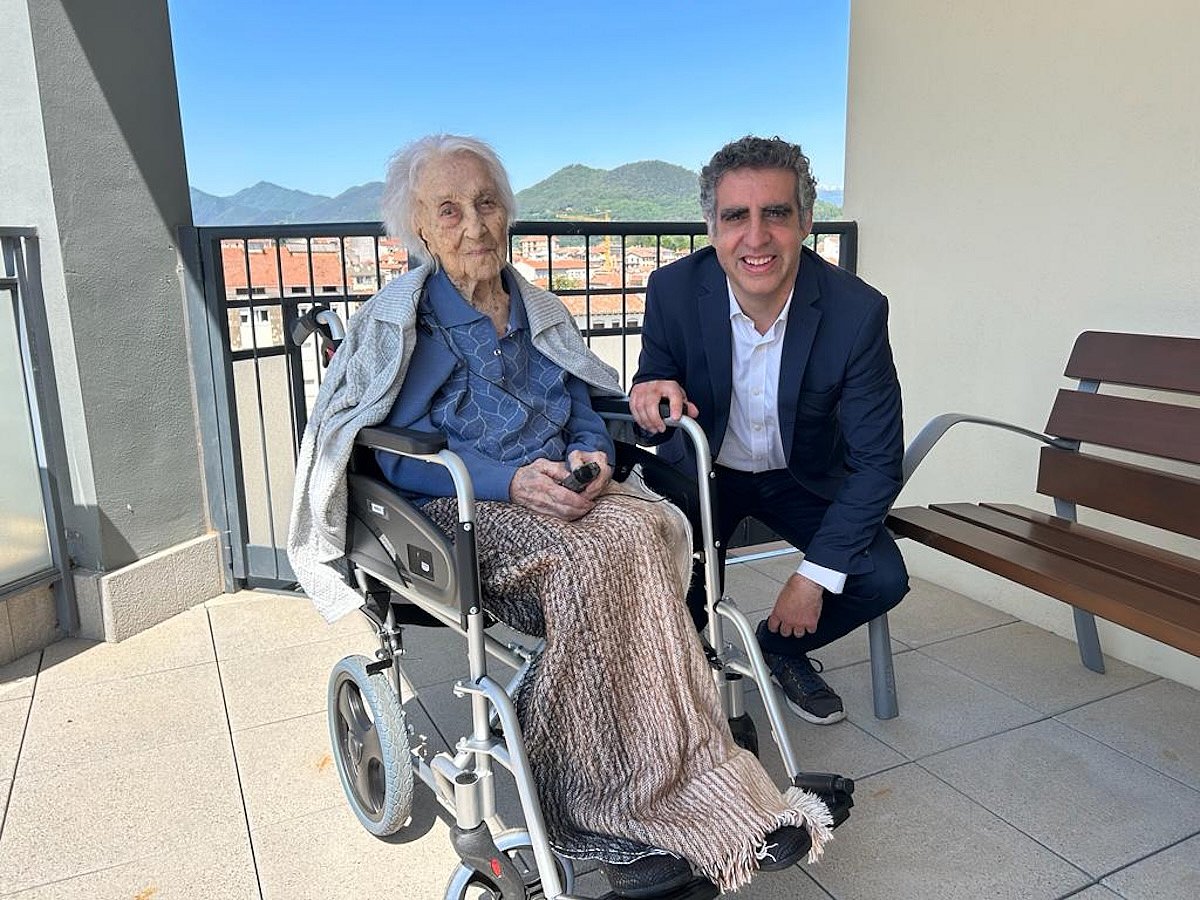Longevity Secrets From The World's Oldest Person
FRIDAY, Sept. 26, 2025 — Maria Branyas Morera was the oldest living person in the world when she died at 117 in August 2024, and she passed with one fervent wish.
“Señora Branyas told us: ‘Please study me so I can help others,’ ” Dr. Manel Esteller, chair of genetics at the University of Barcelona School of Medicine, said in a news release. “And she has!”
It turns out Branyas had many things going for her: a healthy lifestyle, beneficial bacteria in her microbiome and genetics that have been linked to longevity, researchers report in the journal Cell Reports Medicine.
“Though we found that healthy aging is a highly individualized process without any one major feature involved – rather, it is many small factors working together – we think that being able to show so clearly the characteristics that lead to healthy, as opposed to unhealthy, aging will be advantageous in the future for all, both young and old,” Esteller said in a news release.
Branyas was born on March 4, 1907, in San Francisco and moved to Spain when she was 8. She’d lived through two world wars, the Spanish civil war and two pandemics – the Spanish flu and COVID-19.
In fact, Branyas contracted COVID at age 113, but made a full recovery.
Branyas’ health and longevity are due in part to her lifestyle, researchers said.
She followed a Mediterranean diet, avoiding too much fat and processed sugars. She walked regularly, until her advanced age made walking too difficult. She also didn’t indulge in either tobacco or alcohol.
As part of her diet, Branyas ate lots of yogurt, which kept her gut microbiome filled with the beneficial bacteria Bifidobacterium, researchers said. This bacteria is known to quell inflammation, which can contribute to faster aging.
Finally, Branyas carried genetic variants that lowered her risk of high cholesterol levels, heart disease, cancer and dementia, researchers found.
“Our results have helped us identify factors that may help many older people live longer, healthier lives,” Esteller said. “We have, for example, identified particular genes that are associated with healthy longevity, and that can therefore be new targets for drug development.”
However, other experts cautioned that it’s nigh impossible to draw solid conclusions from the life of a single person.
“It’s always important to be careful when interpreting results from individual cases, as opposed to large, well-controlled population studies,” Immaculata De Vivo, a professor of epidemiology at Harvard T.H. Chan School of Public Health, told The New York Times.
Genetics and lifestyle might help a person’s health, but “disease causation is generally a matter of probabilities rather than absolutes,” De Vivo said.
In other words, there’s also a certain amount of luck in living as long as Branyas.
Sources
- University of Barcelona, news release, Sept. 24, 2025
- The New York Times, Sept. 24, 2025
Disclaimer: Statistical data in medical articles provide general trends and do not pertain to individuals. Individual factors can vary greatly. Always seek personalized medical advice for individual healthcare decisions.
© 2025 HealthDay. All rights reserved.
Read this next
New World Screwworm Parasite Detected in Northern Mexico Near U.S. Border
FRIDAY, Sept. 26, 2025 — A dangerous parasite once eliminated in the United States has been detected in northern Mexico, close to the U.S. border. Mexico’s...
Gene Therapy Slows Huntington’s Disease in Early Trial
FRIDAY, Sept. 26, 2025 — A new gene therapy has shown promise in slowing the progression of Huntington’s disease, according to early trial results released...
Tylenol Refutes Old Post as Pregnancy Safety Debate Resurfaces
FRIDAY, Sept. 26, 2025 — The maker of Tylenol is pushing back against resurfaced claims that its popular pain reliever is unsafe for pregnant women. Kenvue, the parent...
More news resources
- FDA Medwatch Drug Alerts
- Daily MedNews
- News for Health Professionals
- New Drug Approvals
- New Drug Applications
- Drug Shortages
- Clinical Trial Results
- Generic Drug Approvals
Subscribe to our newsletter
Whatever your topic of interest, subscribe to our newsletters to get the best of Drugs.com in your inbox.


